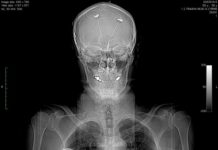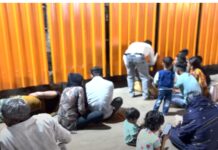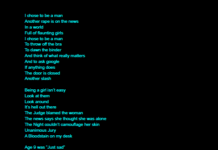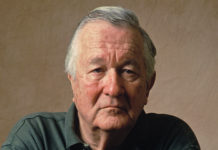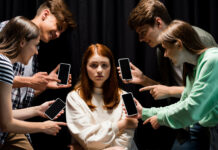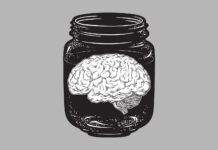Adverse Effects: The Perils of Deep Brain Stimulation for Depression
Hundreds of people have been given remote control deep brain stimulation implants for psychiatric disorders such as depression, OCD and Tourette’s. Yet DBS specialists still have no clue about its mechanisms of action and research suggests its hefty health and safety risks far outweigh benefits.
Faith Healing in India: An Ancient Way of Tending to Madness
In contrast to the colonial legacy of medical psychiatry in India, indigenous and faith healing methods emphasize the interconnectedness of the mind, body, and spirit, using rituals, storytelling, and communal support to create a holistic healing environment.
Music Aids Mental Health: Science Shows Why
What can science tell us about music’s impact on our cognition and on our mood, on our capacity for empathy, and our sense of connection with others? How does it change the brain? How does it change us?
Campaign Against ECT Gains Traction in UK
"Across the pond," campaigners’ efforts against electroshock are gaining public notice. Can their approach work in the US?
A Neuroscientist Evaluates the Standard Biological Model of Depression
Current evidence does not support a biological hypothesis of depression. It is far better predicted by levels of childhood trauma, life stress, and lack of social supports.
Beyond Labels and Meds—Closer Look: Isabella Castillo
At times I tend to feel invisible. Sometimes I don’t feel like I fit in with everyone else; I feel like an outsider.
Mutual Support in an Age of Social Distancing
Connection, whether one-on-one or in groups, is at the heart of peer support. In a time when social distancing and stay-at-home orders proliferate, the Western Massachusetts Recovery Learning Community/Wildflower Alliance (WMRLC) is finding creative ways to adapt to rapidly changing circumstances dictated by the novel coronavirus.
Suicide Hotlines Bill Themselves as Confidential—Even as Some Trace Your Call
Every year suicide hotline centers covertly trace tens of thousands of confidential calls, and police come to homes, schools, and workplaces to forcibly take callers to psychiatric hospitals.
Beyond Labels and Meds—Closer Look: Madeline Aliah
Meet another talented teen behind the pieces in MIA's art exhibition. She writes: "This poem was written in my first year at a queer-positive school and is processing the new forms of guilt and shame I experienced and was exposed to."
The Serotonin Zombie: Authors of New Study Try to Breathe New Life into the...
Despite new claims that their study provides "clear evidence" linking serotonin and depression, their data actually supports the opposite conclusion: serotonin levels did not correlate with depression.
Why Isn’t There a Popular Hashtag for Involuntary Commitment?
As uses of psychiatric force expand, can social media be better used to focus critical attention?
The Dying of the Light: Norway’s “Medication-Free” Services for Psychotic Patients Are Fading Away
Despite their successful outcomes, Norwegian non-coercive and medication-free programs are being threatened with closure.
William Styron: His Struggles with Psychiatry and Its Pills
Author William Styron is often remembered for speaking about depression as an illness. But a review of his life reveals that psychiatric drugs may have triggered and even worsened his depressive episodes.
The Editorial Demise of Psychotherapy and Psychosomatics Is Bad News For Us All
Karger’s decision to replace the editorial leadership without consultation is extraordinary, abruptly ending decades of success and accumulated expertise.
“A Dangerous Substance”: The Impact of Social Media on Youth Mental Health
This is what social media does, she says. It draws people in. It hurts people. In the worst cases, it kills people.
Anatomy of an Industry: Commerce, Payments to Psychiatrists and Betrayal of the Public Good
Pharmaceutical companies paid psychiatrists $340 million from 2014 through 2020, corrupting every aspect of the testing and marketing of new psychiatric drugs.
The Door to a Revolution in Psychiatry Cracks Open
The Ministry of Health in Norway has ordered its four regional health authorities to offer medicine-free treatment in psychiatric hospitals. A six-bed ward in Tromso, which is in the far north of Norway, is now providing such care.
Inner Fire: Where Seekers Have a Choice
A Vermont residential community program helps people taper or stay off medications with holistic care embedded in a pastoral setting.
Exploding Myths About Schizophrenia: An Interview with Courtenay Harding
The Vermont Longitudinal Study, led by Courtenay Harding, belied conventional beliefs about schizophrenia by showing remarkably good outcomes for patients discharged in the 1950s and '60s.
Adverse Childhood Experiences: When Will the Lessons of the ACE Study Inform Societal Care?
The ACE study tells of how adverse childhood experiences increase the risk of psychological and physical problems in adulthood. When will we start incorporating these findings into public health policy and medical care?
In the Courts, a Partial Win for Informed Consent and ECT Justice
Price Hancock views the Thelen verdict as a partial win. "The jury agreed that the manufacturer 'failed to warn.’ That's huge. It's a step in the right direction."
The Proactive Search for Mental Illnesses in Children
Part one of a two-part Mad In America investigation into the expansion of psychological screening and electronic surveillance of children and youth. A new government-funded mental health training program for British Columbia family physicians and school staff promotes screening for mental disorders in all children and youth. Critics say the program omits key scientific evidence, seems more like drug promotion than medical education, and downplays serious potential harms. Nevertheless, programs like it are rolling out across Canada and the US.
Depression: Psychiatry’s Discredited Theories and Drugs Versus a Sane Model and Approach
Psychiatry’s depression outcomes are poor because its bio-chemical-electrical treatments are based on a depression model that science has flushed down the toilet.
Mental Health Apps: AI Surveillance Enters Our World
While the developers are promoting the apps as a public health initiative, they are effectively an AI that would be snooping on you at all times—ostensibly coming to know you better than you know yourself. And ultimately doing so for commercial purposes that will expand the psychiatric enterprise.
Causality in Mental Disturbance: A Review of the Neuroscience
Psychiatry's medicalization of social and psychological suffering is not justified by the currently known biology.

